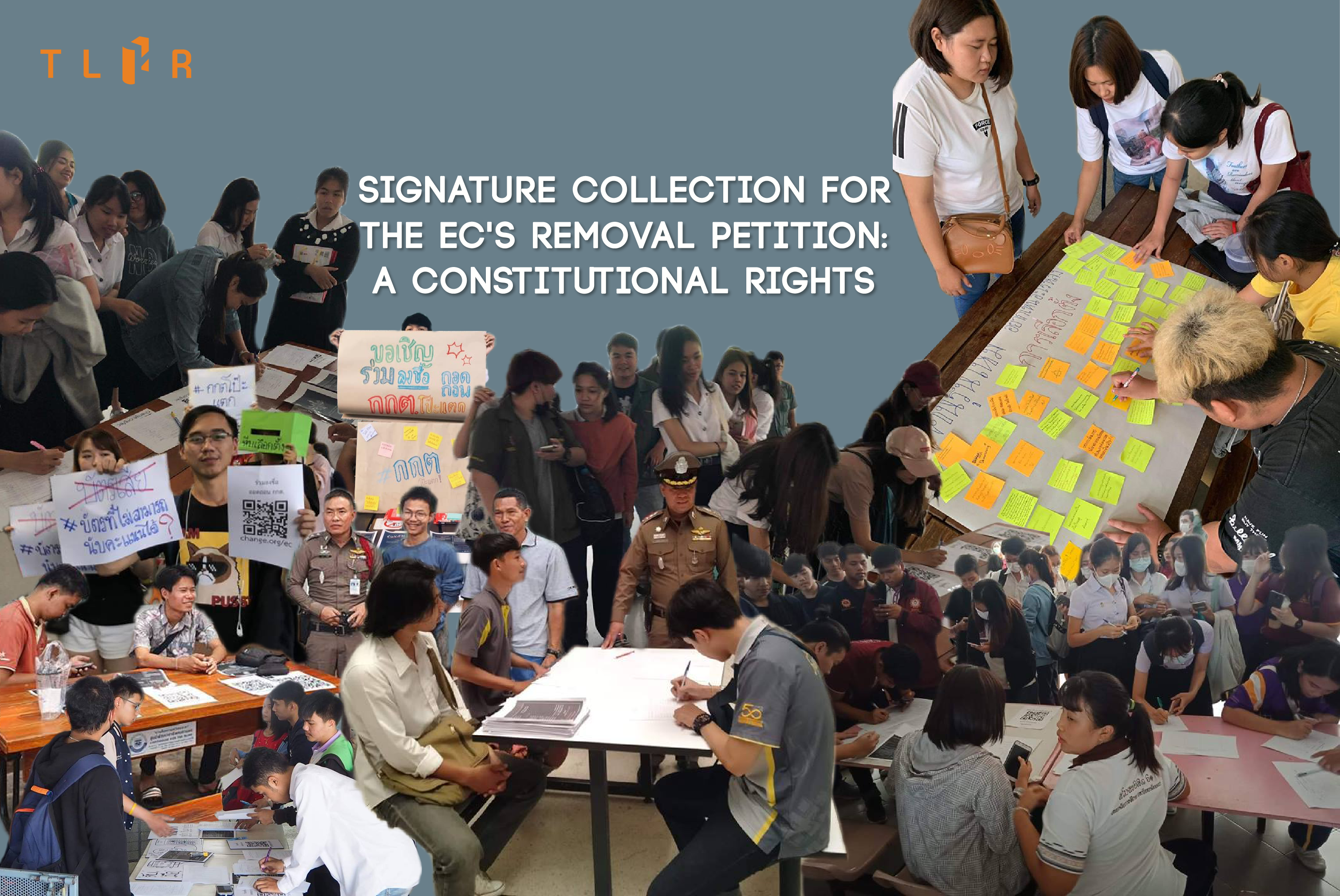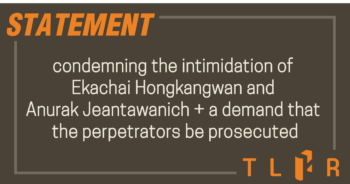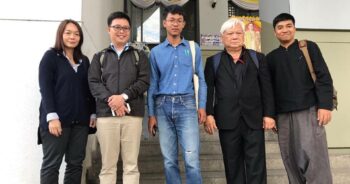Universities should offer spaces to nurture the exercise of freedom of expression
In the aftermath of Thailand’s national election on 24 March 2019, students and the general public have raised questions and expressed their skepticism regarding the performance of the Election Commission of Thailand (ECT). Throughout the election process – from the tabulation of the votes to the announcement of the results – the ECT has allegedly demonstrated its inability to perform its duties effectively. The performance of the ECT has galvanized a movement to collect signatures of individuals who want to file a complaint with the National Anti-Corruption Commission (NACC) to investigate the manner in which the ECT performed their duties provided by the Constitutional law.
To collect signatures, students and people in various cities throughout Thailand have set up at least 23 stalls where people can sign the impeachment motion. However, administrators in eight universities as well as the police have precluded students from organizing signature collection initiatives. As the result, the students were either forced to cancel the activities or move the stalls elsewhere. In addition, the organizers of the signature campaigns have been followed by both plainclothes and uniformed officials. One organizer was even visited by Authorities at his private residence at Rayong province.
Undertaking signature campaigns is an exercise of the legal right to participate in public affairs. The Thai Lawyers for Human Rights (TLHR) would like to draw authorities’ attention to the following points:
1. The signature campaign to trigger an inquiry into the performance of the ECT by the NACC is a procedure to explore if there have been any abuses of power, omission of duties or intentional abuses of office and power in breach of the Constitution or statutory laws. It is an attempt to trigger a process to examine if there have been any serious violations of the ethical standards as per Article 235 coupled with Article 234 (1) of the Constitution of the Kingdom of Thailand 2017.
Undertaking a signature campaign is an exercise of a legal right by people who want to participate in and better understand the management, investigation of, checks and balances applied to and the performance of duties by public officers in line with Article 41 of the Constitution and Article 25 (a) (b) of the International Covenant on Civil and Political Rights (ICCPR) to which Thailand is a state party. Organizers of the signature campaign have simply exercised their rights as active voters who want to participate in an electoral process with the organization that held an election.
2. The signature campaign to impeach the ECT is an exercise of a legal right prescribed in a legal procedure with a specific purpose to collect signatures and documents to submit to the NACC. It is not a public demonstration and therefore not a public assembly as defined in Article 4 of the Public Assembly Act 2015. Public officers cannot invoke the law to restrict or stymie such a process regardless of whether the signature campaign takes place in an educational institution, a private or public area.
Nonetheless, opposition to the ECT in public spheres and in other forms per the definition of the Public Assembly Act 2015 can be carried out if it is undertaken in compliance with the Public Assembly Act.
The right to freedom of assembly is also prescribed in Article 44 of the current Constitution. In addition, an opinion, a speech, a writing, a printing, an advertisement and any conveyance of message made in public is simply a legitimate exercise of the right to freedom of expression provided for in Article 34 of the Constitution 2017.
3. Personal freedom, be it freedom of assembly or freedom of expression, ought to be respected by the general public and public officers and no infringement can be made upon it. Authorities are also obliged to act to protect and promote the exercise of such freedom in accordance with the constitutional provisions and the obligations as per the ICCPR’s Articles 19 and 21. In addition, it should be noted that the National Council for Peace and Order (NCPO) has already revoked Article 12 of the Head of the NCPO Order no. 3/2558 which prohibits a political gathering of five persons and upward. The authorities can no longer invoke this provision to deprive people of their right to public assembly.
Any attempt to intervene or to visit the residence of the persons involved with the activity by the authorities is therefore an act committed without any legitimacy. It is a violation of freedom of expression and is a breach of both the Constitution and international obligations. The students and people who have exercised the rights and freedom per (1) and (2) can rightfully refuse to cooperate if such harassment takes place.
4. Universities are a space to promote the acquisition of knowledge and wisdom. It should therefore be an open space in which students and the general public can freely exercise their rights and freedoms. They should be a springboard to promote further learning in wider society.
Universities’ claims to preserve their political neutrality in order to put pressure on or to intervene in the signature campaigns organized by the students, and students’ justifiable fear of legal prosecutions as a result of their activities is therefore an unacceptable phenomenon.
Universities driven by a pro-democracy spirit should therefore recognize the right to freedom of expression of the students and should encourage them to express their diverse opinions on an equal basis and without any intervention or any attempt to impose any condition that may prevent the students from expressing themselves freely.




